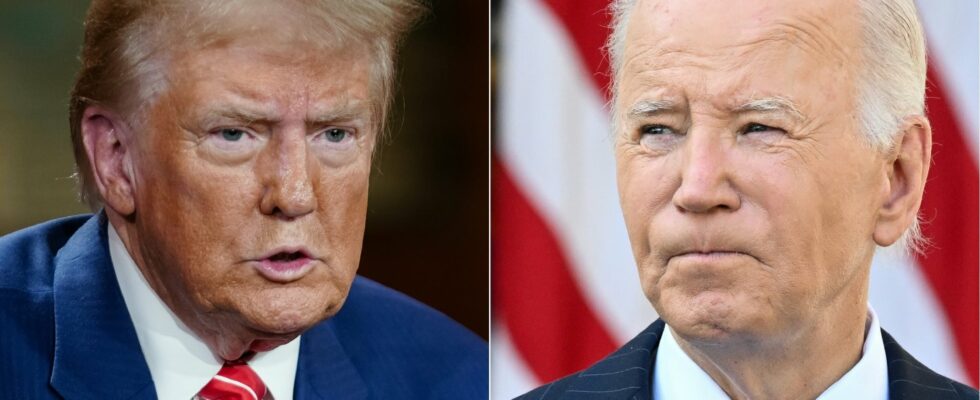He is not yet inaugurated, but Donald Trump, who will not officially be president until January 20, 2025, is already on all diplomatic fronts, breaking with a well-established tradition according to which there is only one President of the United States at the time. But the next tenant of the White House doesn’t care and openly interferes in the country’s foreign policy, with posts on his Truth Social platform, placing the outgoing Joe Biden administration in a delicate position.
Donald Trump made his big return to the international scene by going to Paris this weekend to attend the reopening of Notre-Dame Cathedral, his first trip abroad since his victory in the presidential election on November 5 . He took the opportunity to meet with French President Emmanuel Macron and Ukrainian President Volodymyr Zelensky, who is putting pressure on him to continue helping his country in times of war, as noted The Wall Street Journal. While Donald Trump spoke to journalists about Ukraine and wrote online what he thought of American interests in Syria — saying “this is not our fight” — Joe Biden did not made no public appearance on Saturday and waited until Sunday to comment on the situation in Syria, notes the New York business daily.
Timidity of the Biden administration criticized by some Democrats. “We should be less constrained and more challenged. We should make our voices heard,” Democratic Washington Governor Jay Inslee told the Wall Street Journal. For some Democrats, Joe Biden is thus losing the transition period.
“Moving to post-Biden”
Before his trip to France, Donald Trump also received a number of foreign leaders at his home in Mar-a-Lago, Florida, including NATO Secretary General Mark Rutte. The billionaire even spoke on the phone, according to the Washington Postwith Vladimir Putin, which he refused to confirm. He also had dinner with Canadian Prime Minister Justin Trudeau, again at his residence.
This is “perhaps unusual” compared to what other elected presidents have done during the transition period of power, “but it is entirely consistent with his own conduct in the past”, comments for AFP Brian Finucane, specialist in American foreign policy at the International Crisis Group. “It is less a question of tying the hands of the Biden administration than of compromising its efforts,” he adds, while noting the existence of contacts between the Biden team and that of Trump, including the future advisor at national security, Mike Waltz. For Colin Clarke, research director at the Soufan Group, “it is not at all surprising that Trump is already seeking to play shadow president”, especially since “most other world leaders are ready to move to the post-Biden and start trying to figure out how to deal with the arrival of the Trump administration.”
Nevertheless, Joe Biden’s discreet presence contrasts with the way President Barack Obama handled Donald Trump’s first electoral victory in 2016. Wall Street Journal recalls that when the Republican, as president-elect, called on the administration to veto a United Nations Security Council resolution criticizing the expansion of Israeli settlements, Barack Obama rejected the pressure and accepted the measure, while his deputy national security adviser explained: “There’s one president at a time.”
